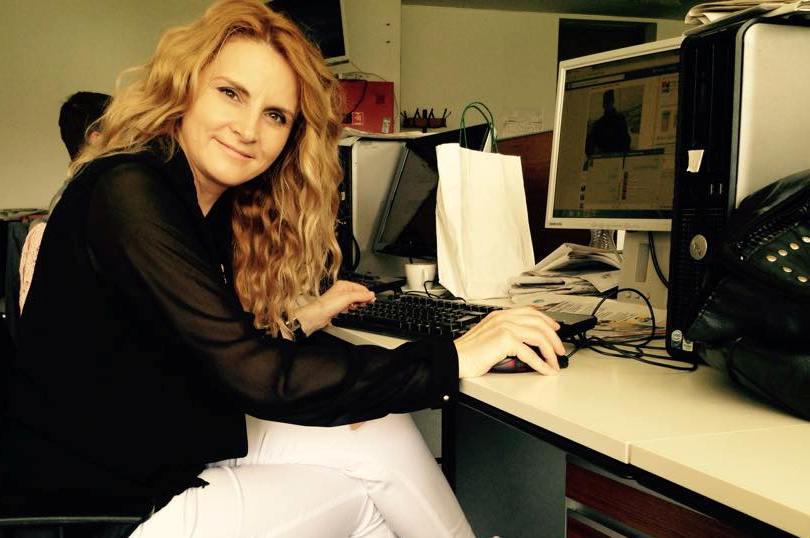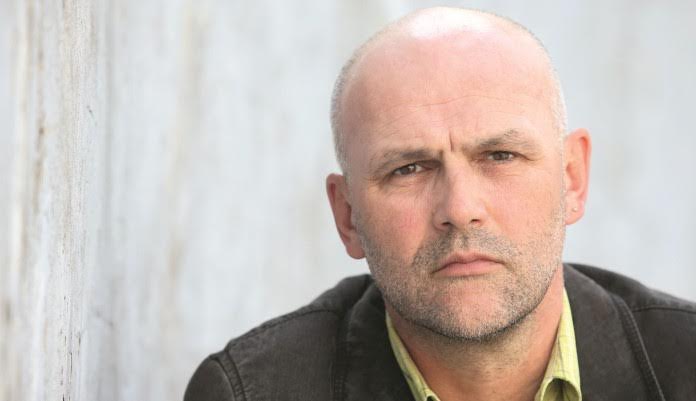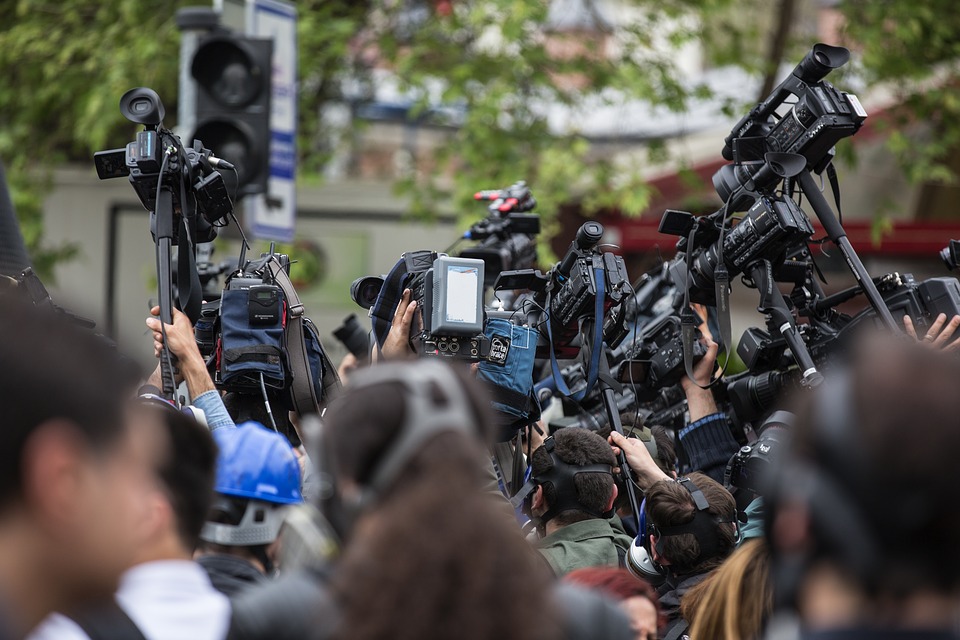СКОПЈЕ, 19.03.2018 – Политичките притисоци со кои се соочувани новинарите во Македонија низ децениите, без оглед на промените на влајачките структури, многу ретко ја мобилизираа новинарската заедница. Најголемиот отпор на новинарите кон владејачката ВМРО-ДПМНЕ беше манифестиран во 2013-2014, со серијата протести по апсењето, а потоа и затворање на Томислав Кежаровски за објавени текстови во списанието “Репортер 92”, за што судот го обвинува дека открива идентитет на заштитен сведок, но тогаш кога Кежаровски ги објавува текстовите за случајот Ореше во 2008, сведокот нема статус на заштитен сведок.

Кежаровски добива затворска казна и покрај напорите да се докаже дека делото најмногу може да биде дефинирано како навреда или клевета: “Адвокатот Филип Медарски и јас побаравме да се согледаат наводите во текстот и да се произнесе судот по нив… дали навистина било така како што сум напишал или не… и дека најповеќе што ожат да направат е да ме гонат за навреда и клевета.
Потоа Филип побара да се достави доказ дека телефонскиот број наведен во документот (записникот) што го објавив е сопственост на сведокот… и што се подразбира под поимот идентитет”.

Дел од текстот на Кежаровски
Кежаровски е осуден со правосилна пресуда на Кривичен суд Скопје 1 од 4 години и шест месеци затвор, а во средината на ноември 2013 година му определија домашен притвор до правосилноста на пресудата.
“На крајот, образложението на пресудата за мене е напишано во едвај четири реда дека со објавување на делови од записникот од изјавата што ја дал сведокот пред истражен судија во судот во Велес и со насловот на вториот текст сум го оддал идентитетот на сведокот и со тоа сум можел да му нанесам штета (внимавај те молам, не сум му нанел него сум можел да му нанесам). Постапувајќи по жалба, Апелацискиот суд ми ја намали казната на 2 (две) години”- вели Кежаровски.
Насер Селмани на протестот на новинарите пред Владата
Можеби најголемиот отпор по случајот Кежаровски, дојде минатата недела, кога голем дел од новинарската заедница пред Владата го изрази својот револт и гнев по инцидентот на високиот функционер на ДУИ, Бекир Асани- кој му испрати закани на Фејсбук на претседателот на ЗНМ, Насер Селмани- закани кои најавуваа ликвидација на самиот Селмани и неговото семејство, заради критиките кон Асани. Овој функционер на ДУИ, откако не дозволил да му биде земена колата заради непрописно паркирање, според медиумските извештаи, физички се обидел да се пресмета со полицајката Јасмина Јаначковска, по што Селмани објави дека правната држава паднала на колена по ваквиот третман на власта кон институциите. Обвинителството најпрво ја отфрли можноста да се покрене истрага за заканите кон Селмани, но ден по протестот, сепак, претседателот на ЗНМ оттаму бил информиран дека претстојува истрага за случајот.
Наведната новинарска глава- уредничка сабја не сече
Сепак, новинарите, судејќи според педесетината интервјуа кои ги направив со нив ( најголемиот дел од новинарите говорат анонимно, додека огромен дел од уредниците и сопствениците воопшто не сакаа да учествуваат во интервјуто ), сметаат дека најголем проблем на со кој последнава деценија се соочуваат и за кој и се отворени да говорат многу подиректно, за разлика од политичките притисоци, останува цената на трудот, која е понижувачка, обезвреднета и под секое ниво: статистиките покажуваат дека просечната новинарска плата се движи околу 300 евра, сума која е најниска во регионот, но особено поразителен е фактот што голем број на уредниците многу често земаат неколкупати поголема плата од новинарите, додека директорите и сопствениците се на врвот на најдобро платените професии.

Никола Здравковиќ
Новинарот Никола Здравковиќ, кој работи за емисијата 360 степени, која се емитува на Алсат, вели дека на неговото претходно работно место во Сител една од работите кои ми пречеле е за да ти зголемат плата од 15.000 денари на 18.000 денари, треба да чекаш безмалку две-три години… И нешто што ми пречи до мера на вадење од кожа, сите ја користат истата реченица- Ако не сакаш за 15.000 денари, има кој сака за 8.000 денари “.
Тамара Чаусидис, претседателка на Синдикатот на новинарите, ги има нотирано причините за молкот на новинарите кога станува збор за нивните основни работнички права: “Многу новинари се без работа, понудата на пазарот на новинарскиот труд е поголема од побарувачката и сопствениците на медиуми ја користат ситуацијата за да ја уриваат цената на трудот и често ги условуваат и ги злоупотребуваат вработените.
Токму на овој начин и се комуницира и со новинарите, како што вели новинарот Здравковиќ- си заминал од Сител затоа што не сакал името, ликот и гласот “да ми се појавуваат со глупости кои се надвор од памет. Од многу колеги низ медиумите имам слушнато како прифаќаат да читаат такви работи бидејќи немале алтернатива, а тие 15.000-18.000 денари им биле драгоцени“.

Арта Тахири
Доколку новинарите побараат поголема плата, доколку се жалат на ниските плати, тогаш кога побарале повисоки примања “им било кажано да си одат”, вели Арта Тахири, уредничка на вести и на емисијата “Патот кон… “ на Алсат, која прецизно ги набројува тешкотиите и проблемите со кои се соочени новинарите, а кои се игнорирани од страна на уредништвото: “ Новинарите се слабо платени, не се вреднува нивниот труд, фактот дека работат на терен, на високи- летни и ниски, зимски температури, но и дека се соочуваат со ризик при нивната работа, имаат закани од различен вид и што е најбитно, работат под стрес и притисок на времето, што влијае директно на нив”. (Тахири говори генерално за состојбите, за искуствата на други новинари со кои е запознаена, не и за третманот кој таа го има во Алсат, ниту пак за состојбите во Алсат)
Новинарка која побара да биде анонимна, токму говори за непостоењето основни услови за работа, ако не се смета компјутерот, за кој вели дека бил застарен “ со полуупотреблива тастатура, непосоењето место за мала кафе- пауза, ужина и сл.
Новинарството е професија која ако искрено ја сакаш ќе ја работиш и во најдолни услови. Сепак, не можам да се пожалам на условите за работа.
Она што понекогаш се случуваше е што од нас новинарите беше барано да одиме на некои настани ( вечерни или преку ден) но за тоа не добивавме надомест за патни трошоци –пр за такси. Или кога ги носевме сметките од такси услугите истите не беа уважувани со образложение дека треба да користиме автобус. Е сега замислете да тргнете да чекате автобус во два правца за да стигнете на настан кој треба да го покриете дента до одредено време. Редакциските автомобили се користеа само за поважните настани”.
Платите се првиот камен на сопнување кој им натежнува на новинарите и ги влече во маѓепсаниот круг од кој не можат да се извлечат, но вториот ѕид со кој се соочуваат некои од новинарите се условите за работа- основните средства за кои говорат дека недостасуваат е пристојна телевизиска опрема што им ја отежнува и онака тешката и деноноќна работа, одбивање да им се обезбеди службен телефон, да им бидат исплатени дневници, за да имаат нормален оброк кога се на терен, додека сопствениците “се моќни бизнисмени”, дефинирани како успешни и влијателни, со џипови, палати и тешки банкарски сметки”- се мисли на оние сопственици кои се здобиле со титулата олигарси, благодарејќи на транцизискиот период, како и алијансите кои ги склопувале со секоја политичка гарнитура, како што се Љубисав Иванов-Ѕинго и Борис Стојменов.
Но, кај Иванов и Стојменов не завршува манифестирањето моќ на сопствениците, кои ги отстрануваат непослушните новинари- Љубиша Арсиќ говори за периодот во ТВ Алфа кога се повлекува Штерјо Наков како сопственик и доаѓаат нови сопственици од Србија- Веселин Јевросимовиќ, од ЦХС Инвест Гроуп“, која има мнозински капитал во фирмата. Како што објавува порталот Скуп, “од 25 март 2013 година, во Службениот весник на Република Србија, стои дека компанијата „Комтраде холдинг Н.В.-Куракао“ од Холандските Антили е стопроцентен сопственик на компанијата „ЦХС ДОО“ од Белград, која е основач на истоимената компанија во Македонија. како управител на фирмата Алфа Скоп ДОО која е еден од сопствениците на ТВ Алфа се јавува Симонида Кажиќ, која е управител на „ЦХС Инвест Груп ДООЕЛ Скопје“, чиј сопственик „ЦХС ДОО во Белград е регистриран на истата адреса Савски Насип бр. 7 во Белград како и „Интернет Гроуп ДОО“ од Белград, сопственик на „Интернет Груп Инвестмент ДООЕЛ“ од Скопје, која се јавува како еден од сопствениците на „Графички Центар“, издавач на „Вест“, „Дневник“ и „Утрински весник“” (повеќе на линкот.

Љубиша Арсиќ
Љубиша Арсиќ говори за функционирањето на Алфа во тоа време, за сопственичката и уредничка структура, која за да ја одбрани политиката на Никола Груевски, “гладна за медиуми и пропаганда”, го елиминираат во новинарска смисла- “како претседател на Синдикатот на ТВ Алфа, новите газди беа законски спречени да ме прогласат за технолошки вишок, како што тоа го направија со десетина мои колеги, но ме ставија под мраз, без право да учествувам во креирањето на уредувачката политика.” Арсиќ оди во Фокус, за 40 проценти помала плата од онаа од Алфа, но со полна слобода за новинарско изразување: “И сега замислете, во 2002 г. Во Телма сум ја имал истата плата што ја имав 12-13 години подоцна, во 2014-2015 г. Ова е илустративен пример како се движеле платите и како се деградира новинарството”.
Но, споредбите на финансиските состојби во медиумските империи како Телма не можат да бидат направени со независните медиуми водени од новинари, како што е примерот со Фокус, во времето на Никола Младенов, или денеска, Јадранка Костиќ. Изворот на финансирање кај медиумските гиганти, и не само кај Телма, туку и кај останатите традиционални медиуми, многу често потекнува од сосема други, крупни бизниси, кои се создадени од олигарси кои стануваат медиумски барони, а некои од нив се одржуваат токму заради политичката спрега која создава директна корупција преку водењето на уредувачка политика од страна на политичките моќници- најилустративен пример е разговорот во бомбите на Заев воден од страна на Драган Павловиќ-Латас и Сашо Мијалков, како и на Емил Стојменов со Сашо Мијалков.
Откази заради синдикализам
Претседателката на Синдикатот на новинарите, Тамара Чаусидис пишува дека тој “се формирал во страшно невреме, во предвечерието на затворањето на А1 ТВ и на весниците на Велија Рамковски, пред заминувањето на ВАЦ од Медиа Принт Македонија (МПМ) и тоа е периодот кога почна една систематска и неумолива операција за конечно убивање на новинарството и негова замена со пропаганда.”

Тамара Чаусидис
Но, следува пресуда за Чаусидис, токму заради нејзината синдикална борба- беше отпуштена од работа од Алсат ТВ 2011, поради тоа што беше претседател на Синдикатот:
“Јас сум отпуштена во август 2011 година од националната ТВ АЛСАТ – М, три месеци откако реагирав и како Синдикат се обидував да го заштитам тогашниот синдикален претставник во Tелевизијата, новинарот Боби Христов. Раководството најнапред се обиде да ме исплаши со деградација, па да ме уцени за на крај да ме отпушти. За ова реагираа домашните медиумски организации како и Меѓународната федерација на новинарите. Случајот е пријавен во Меѓународната организација на трудот (ИЛО) и Комитетот за слобода на здружување одлучи во моја полза, но домашните судови пресудија во корист на работодавачот. Мојот случај сега е во Стразбур.”
Боби Христов
Причината за отказот на Христов е идентична- синдикалното лидерство го остава на улица: “Синдикалниот активизам беше претпоставениот повод за отказ од Алсат-М, формално покриен со “спогодба”, потпишана од моја страна. Ништовноста на таквата “спогодба” беше потврдена со две првостепени пресуди во моја корист. Но, за жал, Апелација на крај ја преиначи пресудата во корист на Алсат-М”- вели Христов.
Но, она што особено загрижува е новинарскиот покорен менталитет, заради кој “не постојат сигурни податоци за членство во Синдикатот, затоа што некои членови се ‘’кријат” поради страв од притисоци.” (Показатели за степенот на слобода на медумите и за безбедноста на новинарите- Македонија, Небиу и др.)
Скоро и да не постои случај од новинарите кои беа интервјуирани да била поднесена официјална жалба до Синдикатот, за остварување на елементарните работнички права, иако биле погодени и се чувствувале деградирани, а како што вели една новинарка која бараше да остане анонимна, “Синдикатот не помага многу во остварување на работничките права, затоа што Законот за работни односи повеќе ги заштитува работодавците”.

Кети Гетева
Кети Гетева, новинарка во Алфа, вели дека “стандардот на живеење на новинарите во локалните медиуми е приказна сама за себе, а колеги во медиуми во помалите градови буквално се на раб на преживување со по 150 евра месечен приход.” Таа особено го потцртува статусот на несигурноста кај новинарите кои хонорарно се исплаќани:“Посебно заплашува фактот што во некои медиуми, освен ниските плати, новинарите се без регулиран статус, или се водат како хонорарци, некои се пријавени на шест месеци, главно на определено време од 1-2 години”.
Новинарите не познаваат денови на вистински одмор, празници и моменти на спокој и мир, особено во ерата на Интернетот, кога бомбардирањето со вести е ужасно напорно да се следи, затоа што приливот на информации не доаѓа само од новите медиуми (Порталите), туку и од социјалните медиуми, како и од граѓанското новинарство.
Она што особено влијае врз урнисаните работнички права на новинарите во Македонија се и неисплаќањата на дежурствата за време на празници, за што говори и новинарка која бараше да биде анонимна: “Имавме дежурства секоја втора недела, додека за празници исто така работевме, а кои не ни беа соодветно надоместувани, како што беше практика во некои други медиуми”. Таа говори и за “плаќања на рати на плати низ неколку месеци… Од друга страна, тоа време беше прилично матно по прашање на плаќање придонеси и куќата за која работев исклучително нерегуларно работеше по тоа прашање”, како и за понижувањето низ кое поминувала таа и некои нејзини колешки: “Дотаму што неколку трудници кои работевме тоа време , моравме да заминеме и да побараме фиктивно да се пријавиме во друга фирма за да го добиеме т.н. трудничко боледување и надомест.
Истото ми се случи и со втората бременост кога работодавецот во висока бременост отворено ми кажа дека сега е време да ме одјават „за да немаат непотребни давачки кон државата“. Така што јас и во првиот случај (не успеав да најдам фирма кој за толку кратко време фиктивно би ме пријавила) и во вториот случај останав без т.н трудничко боледување… Неретко одев на работа и кога детето ми имаше 39 степени температура… Мислам дека работите по ова прашање генерално не се многу сменети и то не само во оваа професија. Во Македонија дефинитивно е тешко да бидеш и мајка и новинар од повеќе причини.”
Следната недела ќе читате: Новинарите трпат мобинг од уредниците и сопствениците
*Оваа статија e објавена во рамките на регионалниот проект “Невидливото насилство: списанија весници”, поддржан од ЕУ, и дел од програмата “Заштита на слободата на медиумите и слободата на изразување”, имплементирана од Хрватското здружение на новинари, како дел од “Регионалната платформа за медиуми за слобода и безбедност на медиумите” новинари на Западен Балкан “. Проектот се реализираше преку партнерство на шест регионални новинарски здруженија: Независната асоцијација на новинари на Србија, Здружението на новинари на БиХ, Хрватското здружение на новинари, Косовското здружение на новинари, Здружението на новинари на Македонија и Сојузот на медиуми на Црна Гора.


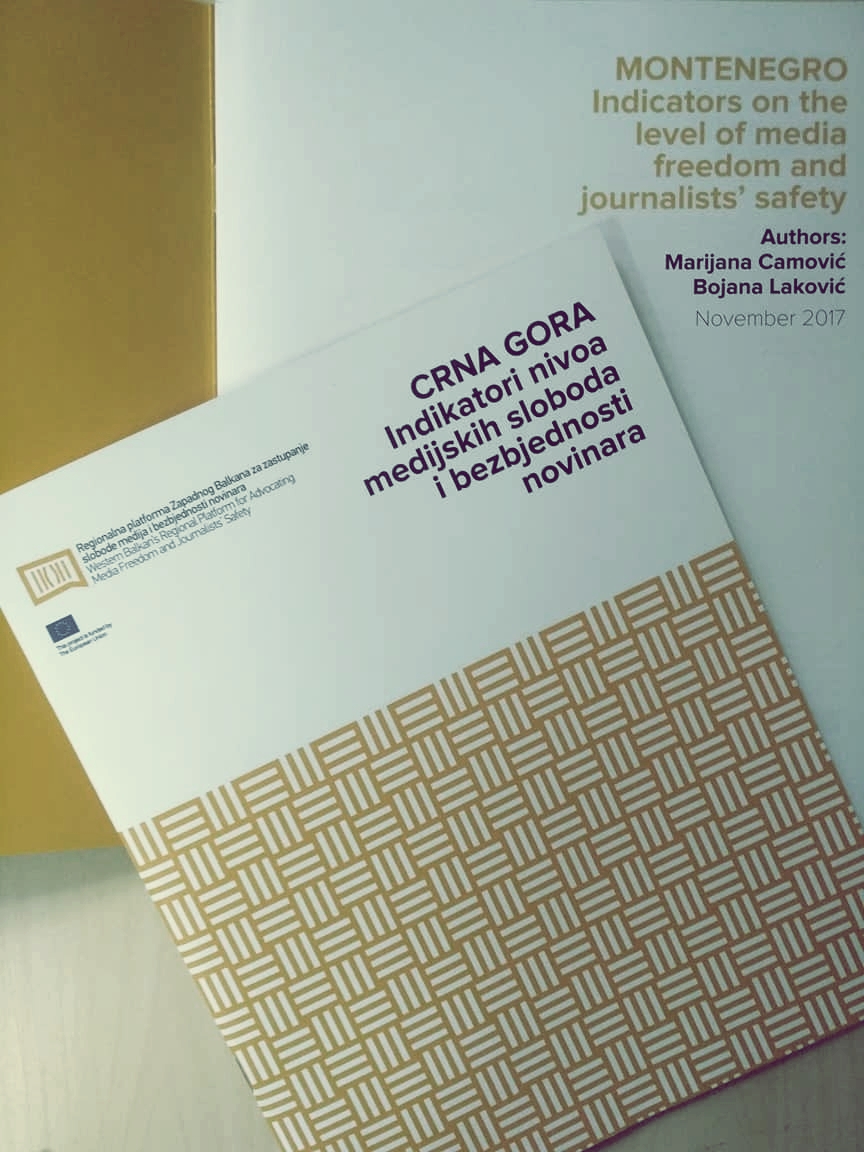
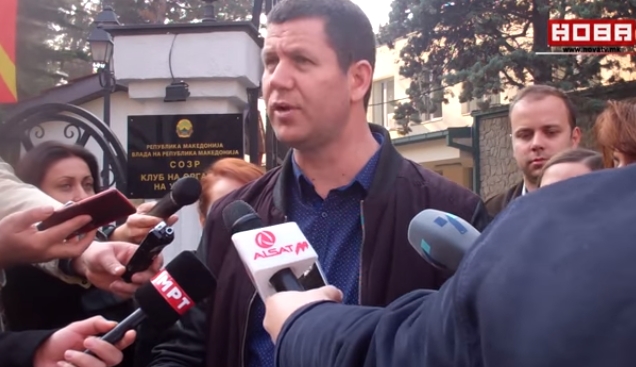










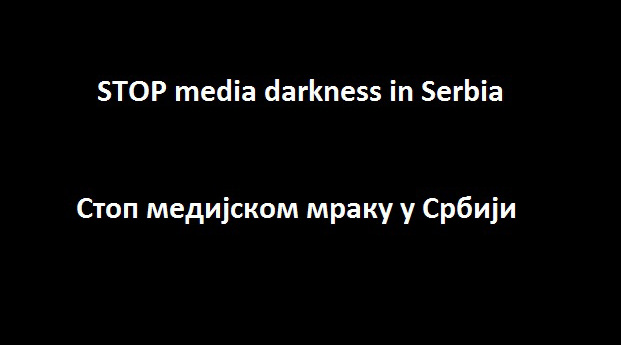
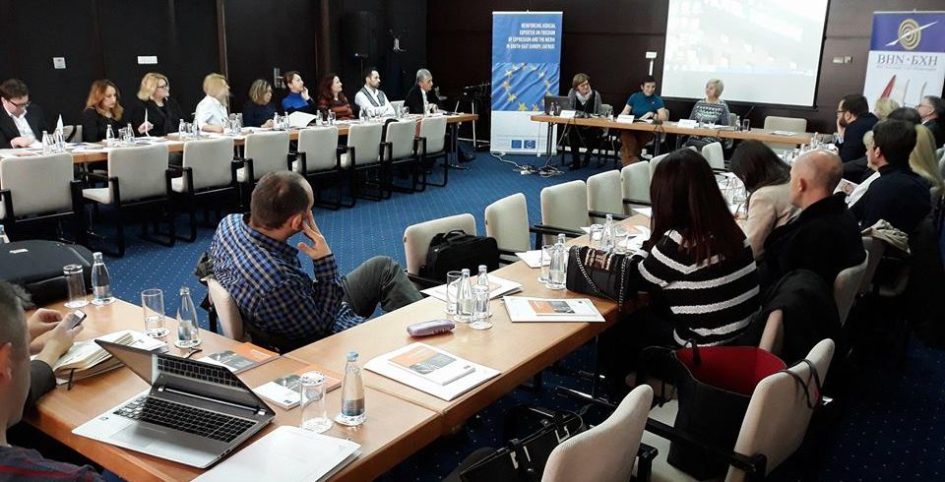
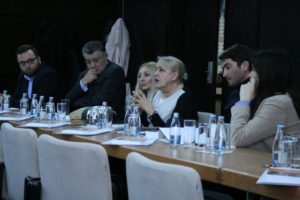 SARAJEVO, 15.03.2018. – In Bosnia and Herzegovina, there are certain formal and legal restrictions on the freedom of expression and work of journalists that are not necessary for a democratic society nor in accordance with European standards, but are an instrument of political pressure on the media, it was noted, inter alia, at the seminar on restrictions on freedom Expressions in BiH that started today in Sarajevo.
SARAJEVO, 15.03.2018. – In Bosnia and Herzegovina, there are certain formal and legal restrictions on the freedom of expression and work of journalists that are not necessary for a democratic society nor in accordance with European standards, but are an instrument of political pressure on the media, it was noted, inter alia, at the seminar on restrictions on freedom Expressions in BiH that started today in Sarajevo.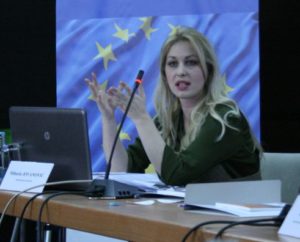 Mihaela Jovanović, judge of the Municipal Court in Živinice, presented the basic principles of freedom of expression that promote Article 10 of the European Convention on Human Rights (ECHR).
Mihaela Jovanović, judge of the Municipal Court in Živinice, presented the basic principles of freedom of expression that promote Article 10 of the European Convention on Human Rights (ECHR).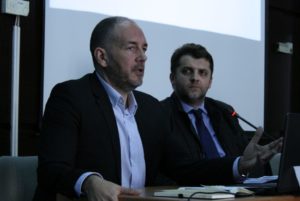 Lawyer and international expert Dušan Stojković said that what is said can lead to violation of someone else’s rights, affect the speaker or to the one they are talking about, but also to the wider social community. “For this reason the reasons for the restrictions must be clearly defined and bounded. Otherwise, if restrictions and criteria are not sufficiently precisely defined through laws, people will be afraid to speak for fear of sanctions, “Stojković said, adding that in the digital environment this issue is even more significant due to the specific nature of the media environment.
Lawyer and international expert Dušan Stojković said that what is said can lead to violation of someone else’s rights, affect the speaker or to the one they are talking about, but also to the wider social community. “For this reason the reasons for the restrictions must be clearly defined and bounded. Otherwise, if restrictions and criteria are not sufficiently precisely defined through laws, people will be afraid to speak for fear of sanctions, “Stojković said, adding that in the digital environment this issue is even more significant due to the specific nature of the media environment.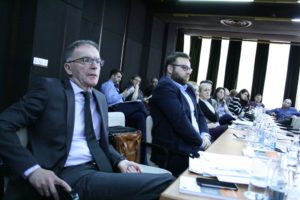 “We try to avoid lawsuits through a detailed examination of all facts of the story, as well as by avoiding the violation of the reputation and honor of the people we are writing about,” he said.
“We try to avoid lawsuits through a detailed examination of all facts of the story, as well as by avoiding the violation of the reputation and honor of the people we are writing about,” he said.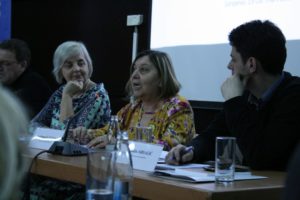 Journalist of Oslobođenje, Gordana Katana said that “limiting access to public events in public institutions to certain journalists and media outlets is pressuring the media and limiting the right to journalistic work.”
Journalist of Oslobođenje, Gordana Katana said that “limiting access to public events in public institutions to certain journalists and media outlets is pressuring the media and limiting the right to journalistic work.”